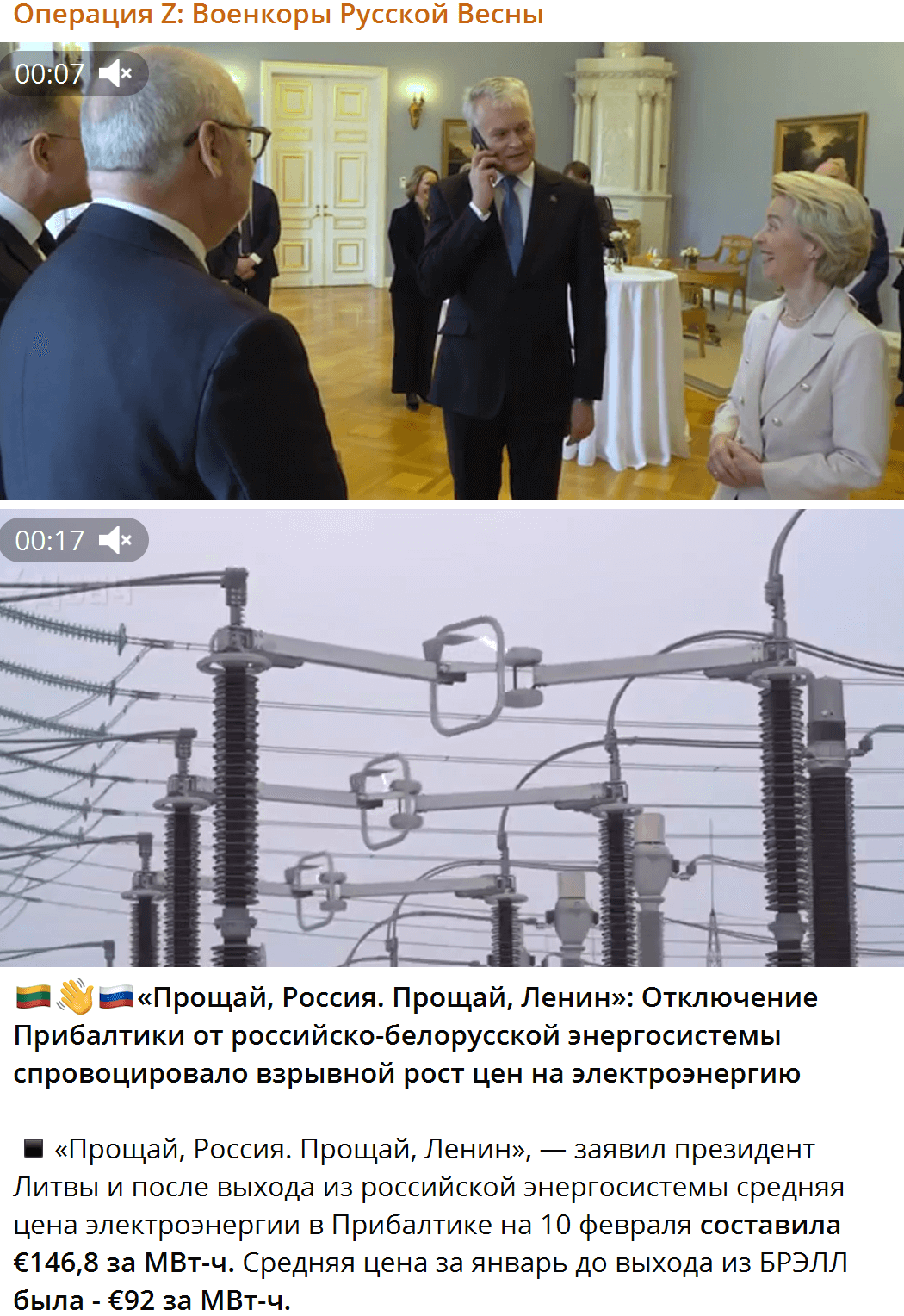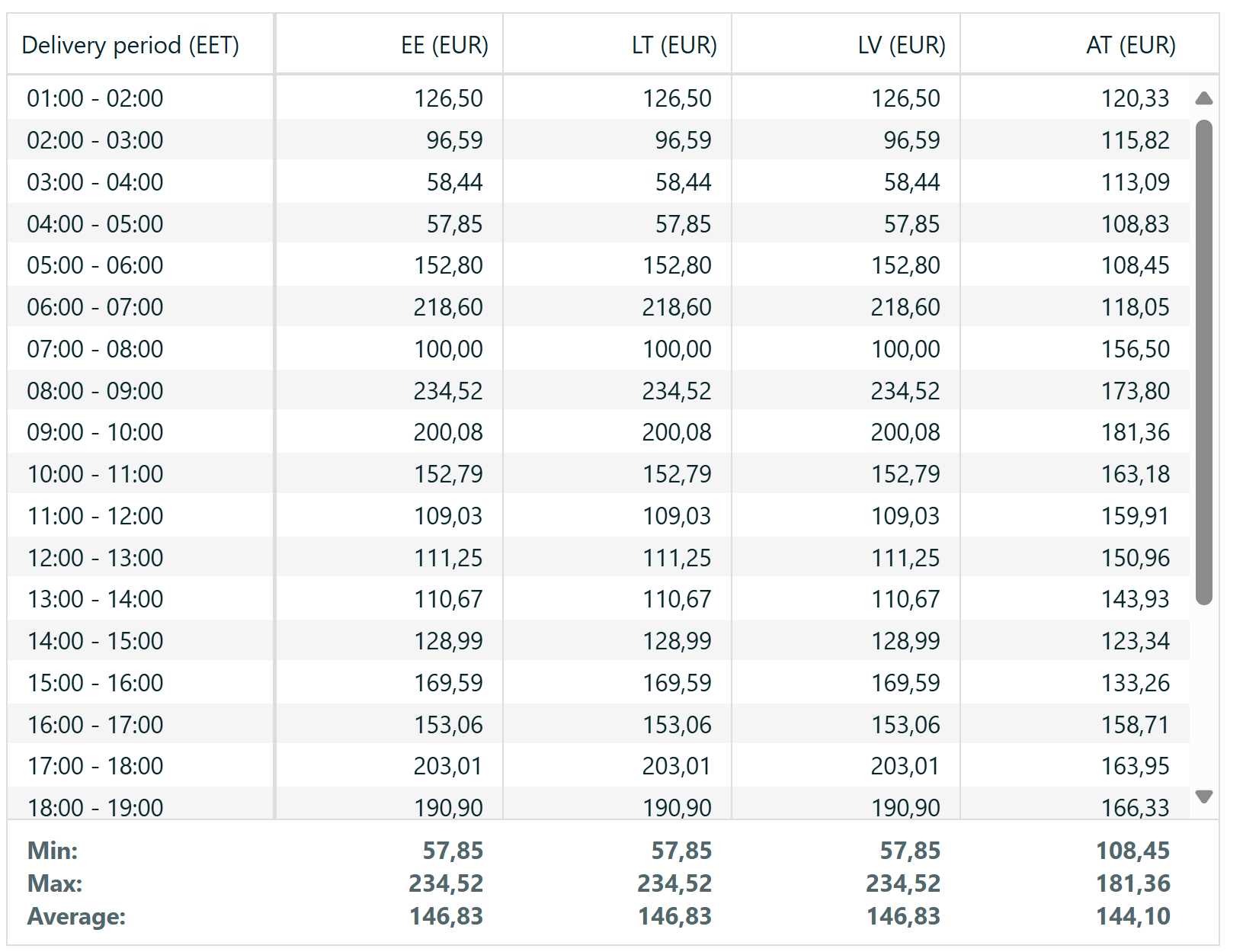Verification within Meta’s Third-Party Fact-Checking Program
Information is being circulated online claiming that the withdrawal of the Baltic countries from the joint energy system with Russia, BRELL, allegedly caused a sharp rise in electricity prices. In particular, on February 10, the price per megawatt-hour of electricity exceeded €146, while in January it was around €92.
This is false. The main reason for the price increase was the low generation of renewable energy, while the exit from BRELL did not significantly affect the cost of electricity.
Screenshot of the post
On February 8, 2025, the Baltic states exited the energy ring (BRELL) shared with Belarus and Russia and joined the European energy system ENTSO-E the following day. Already on February 10, according to the Nord Pool exchange, the average price of electricity in the Baltic countries rose to €146 per megawatt-hour. Russians linked this price rise to the withdrawal from BRELL.
According to Renatas Pocius, head of Lithuania’s National Energy Regulatory Council, the main reasons for the price increase were low renewable energy production, a malfunction of the EstLink 2 undersea cable between Finland and Estonia, increased consumption, and rising natural gas prices. 
Average electricity price in the Baltic countries as of February 10, 2025. Source Nord Pool
BRELL is an energy ring that included Lithuania, Latvia, and Estonia, along with Belarus and Russia, since 2001. The Baltic countries were the last EU members whose power grids still operated in sync with the Russian system. Russia played a key role by centrally controlling energy balancing from Moscow. The Baltic countries expressed their strategic desire to become part of the continental European power grid back in 2007 and have since taken consistent steps in this direction: building and upgrading power lines, conducting necessary studies, updating technical equipment, and more. The European Commission covered 75% of all costs, with total financial assistance reaching over €1.2 billion over 15 years.
Despite synchronization with the EU, the Baltic countries will initially need to maintain higher reserve power volumes. However, this will not significantly impact prices. Renatas Pocius stated that the Baltic countries’ integration into the EU energy system either does not affect electricity costs or affects them minimally at around 1%.
Estonian grid operator Elering reported only a slight increase in prices, within “a few percent”. The company added that the most significant factors affecting prices include air temperature, availability of renewable energy sources, technical failures at power plants, and intersystem lines, rather than synchronization with the EU. A representative of Latvia’s Ministry of Climate and Energy told Re:Check fact-checkers that price increases would not exceed 5%.
It’s worth noting that electricity price fluctuations in the Baltic states occurred even before their withdrawal from BRELL. For example, on January 19, when the countries were still part of the system, the average price per megawatt-hour was about €58.5. By January 20, it had risen to over €178, and the next day it dropped again.
Russians are spreading messages about a “sharp price increase” to suggest that without Russia, the Baltic countries will enter a crisis and “collapse” with the EU. In reality, disconnecting from the Russian energy ring allows the Baltic states to control their own power grids and eliminate pressure and blackmail from Russia.
Attention
The authors do not work for, consult to, own shares in or receive funding from any company or organization that would benefit from this article, and have no relevant affiliations

